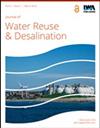利用机器学习架构对含盐水位分析的处理过程进行优化和建模
IF 2.3
Q2 Environmental Science
引用次数: 5
摘要
水是使人类生命形式得以存在的重要资源。近年来,对淡水消费的需求显著增加。海水处理设施的可靠性和效率较低。深度学习系统有可能提高盐水中盐颗粒分析的效率和准确性,这将有利于水处理厂的性能。本研究提出了一种基于水位数据分析的盐水处理过程优化和建模的新方法,该方法使用机器学习(ML)技术。在此,使用基于分子分离的反渗透贝叶斯优化进行优化和建模。然后,利用Kernelized支持群机器的反向传播进行了模拟水盐水颗粒分析。基于水矿化度数据,从准确性、精密度、召回率和特异性、计算成本、Kappa系数等方面进行了实验分析。该技术的准确率为92%,准确率为83%,召回率为78%,特异性为81%,计算成本为59%,Kappa系数为78%。本文章由计算机程序翻译,如有差异,请以英文原文为准。
Using machine learning architecture to optimize and model the treatment process for saline water level analysis
Water is a vital resource that makes it possible for human life forms to exist. The need for freshwater consumption has significantly increased in recent years. Seawater treatment facilities are less dependable and efficient. Deep learning systems have the potential to increase the efficiency as well as the accuracy of salt particle analysis in saltwater, which will benefit water treatment plant performance. This research proposed a novel method for optimization and modelling of the treatment process for saline water based on water level data analysis using machine learning (ML) techniques. Here, the optimization and modelling are carried out using molecular separation-based reverse osmosis Bayesian optimization. Then the modelled water saline particle analysis has been carried out using back propagation with Kernelized support swarm machine. Experimental analysis is carried out based on water salinity data in terms of accuracy, precision, recall, and specificity, computational cost, Kappa coefficient. Proposed technique attained an accuracy of 92%, precision of 83%, recall of 78%, specificity of 81%, Computational cost of 59%, Kappa coefficient of 78%.
求助全文
通过发布文献求助,成功后即可免费获取论文全文。
去求助
来源期刊

Journal of Water Reuse and Desalination
ENGINEERING, ENVIRONMENTAL-WATER RESOURCES
CiteScore
4.30
自引率
0.00%
发文量
23
审稿时长
16 weeks
期刊介绍:
Journal of Water Reuse and Desalination publishes refereed review articles, theoretical and experimental research papers, new findings and issues of unplanned and planned reuse. The journal welcomes contributions from developing and developed countries.
 求助内容:
求助内容: 应助结果提醒方式:
应助结果提醒方式:


